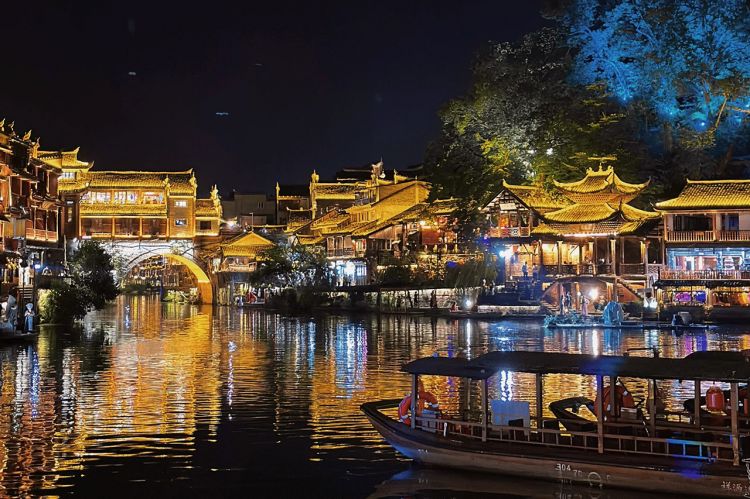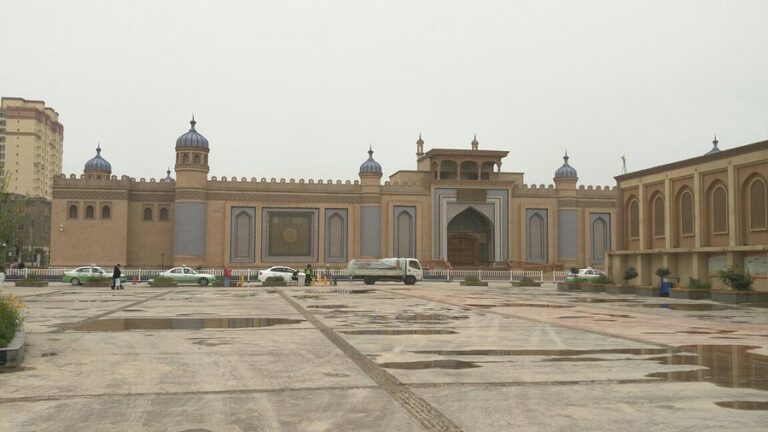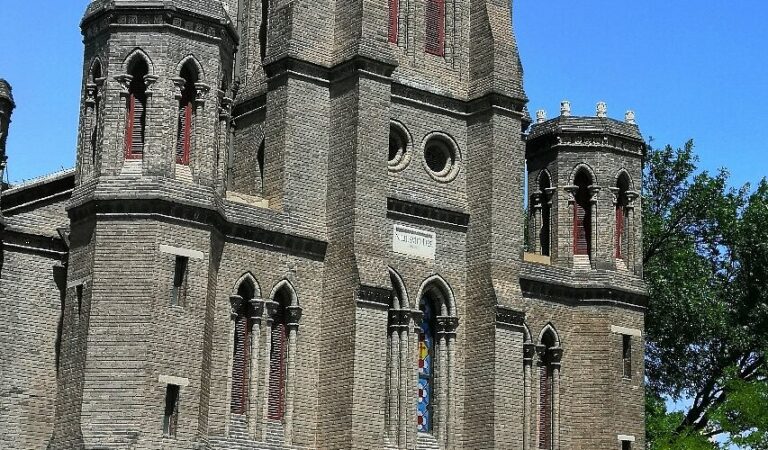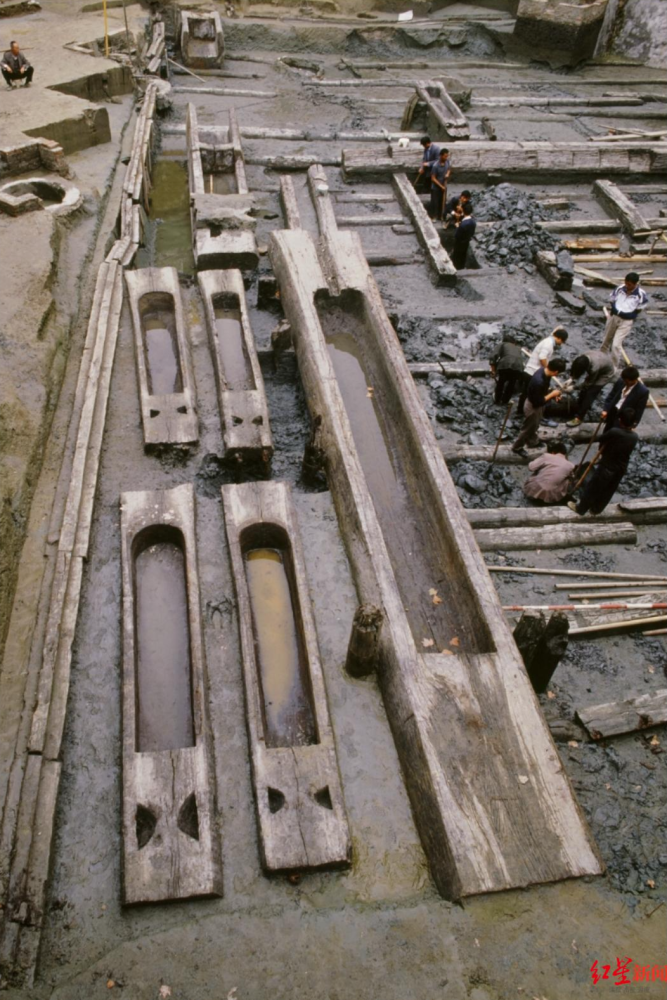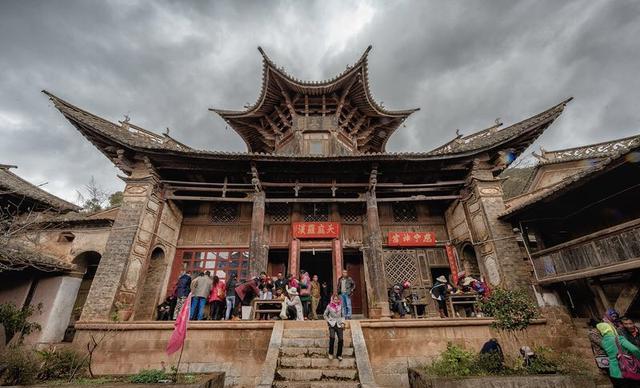Experience Tranquility at Jinhua Juxi Kongshi Jiamiao: A Must-Visit in Zhejiang
An Essential Guide to Visiting Jinhua Juxi Kongshi Jiamiao
In This Guide
- An Essential Guide to Visiting Jinhua Juxi Kongshi Jiamiao
- The Rich History of Jinhua Juxi Kongshi Jiamiao
- Main Highlights: What to See at Jinhua Juxi Kongshi Jiamiao
- Planning Your Visit: A Practical Guide
- Tickets, Hours, and Booking
- How to Get There
- Local Cuisine and Accommodation
- Frequently Asked Questions
- Final Thoughts on Your Trip
Nestled in the serene embrace of the Dapan Mountain range in Zhejiang Province, Jinhua Juxi Kongshi Jiamiao, or the Juxi Confucian Family Temple, stands as a testament to the enduring legacy of Confucianism and its profound influence on Chinese culture. This remarkable site, often referred to as the “Third Holy Land” of Confucius descendants, is not just a temple; it symbolizes a rich history that intertwines with the lives of the Kong family, descendants of Confucius himself.
Juxi Village, where the temple is located, is a picturesque enclave that has remained largely untouched by modernity, offering visitors a glimpse into the past. Surrounded by lush mountains and flowing streams, the village’s tranquility is complemented by the vibrant spirit of its community, all of whom bear the surname Kong. This unique heritage makes Juxi one of the largest settlements of Confucius’s descendants in southern China, with a population that continues to uphold the values and teachings of their illustrious ancestor.
The temple itself is a striking architectural marvel, embodying the classic features of traditional Chinese design. Its halls and courtyards are not only dedicated to honoring Confucius but also serve as a gathering place for the local community to celebrate their shared heritage and philosophical traditions. As you step inside, the air is thick with respect and reverence, echoing the teachings of Confucius that have shaped the moral fabric of Chinese society for centuries.
Visitors to Jinhua Juxi Kongshi Jiamiao are invited to explore not only the temple but also the surrounding natural beauty and historical landmarks, including ancient bridges, towering trees, and relics of the past that tell the story of a lineage that has thrived for nearly a millennium. This is a place where history, culture, and nature coexist harmoniously, offering a unique experience for those seeking to understand the depth of Confucian influence in modern society.
Whether you are a history enthusiast, a cultural explorer, or simply in search of tranquility, the Juxi Confucian Family Temple promises an enriching journey into the heart of one of China’s most cherished legacies.
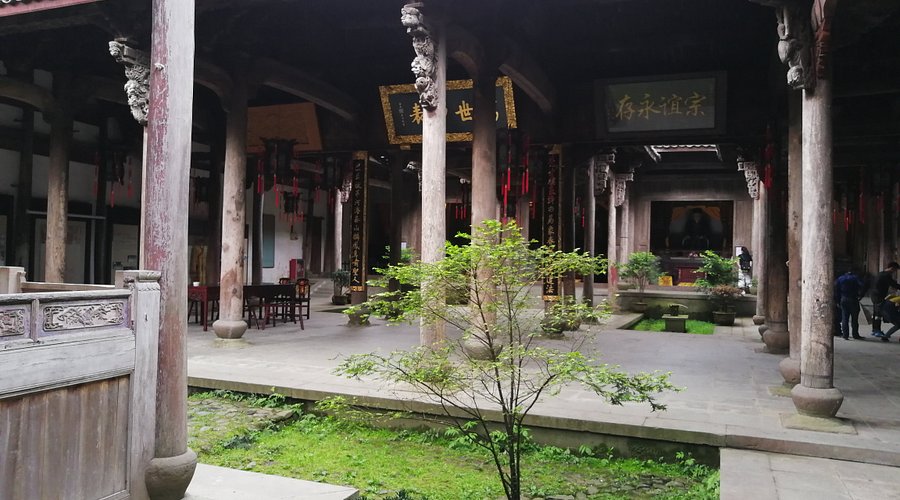
Jinhua Juxi Kongshi Jiamiao.
The Rich History of Jinhua Juxi Kongshi Jiamiao
Nestled within the verdant embrace of the Dapan Mountain National Nature Reserve in Zhejiang Province, Jinhua Juxi Kongshi Jiamiao, or the Kong Family Ancestral Hall of Juxi, stands as a testament to the enduring legacy of Confucianism in Southern China. This remarkable site is not merely an architectural marvel; it is a vital piece of history that encapsulates the journey of Confucius’s descendants over nearly a millennium.
The origins of the Juxi Kongshi Jiamiao date back to the early 12th century, during a tumultuous period in Chinese history marked by invasions from the Jurchen tribes. In 1127, as the Northern Song Dynasty faced its demise, Confucius’s 48th descendant, Kong Duangong (孔端躬), fled southward with his father, Kong Ruojun, to escape the chaos. Their journey led them through the picturesque landscapes of the region now known as Juxi Village. Tragically, during this journey, Kong Ruojun fell ill and passed away in Juxi, prompting his son to establish roots in this serene locale, drawn by its natural beauty and potential for a new life.
Kong Duangong and his family settled in Juxi, where he became a revered figure in the community, earning the title “Kong the Great Benefactor” for his medical skills and commitment to education. His decision to remain in Juxi was influenced by both filial piety—he chose to stay near his father’s grave—and a desire to cultivate a life steeped in Confucian values. Over time, the Kong family flourished, and the village became a significant center for the descendants of Confucius, known as the “Southern Confucius” (婺州南孔).
The construction of the ancestral hall itself began in the mid-13th century. It was officially established during the Baoyou era (1253-1258) under the auspices of the Southern Song Dynasty, which recognized Kong Duangong’s contributions to society. The hall was constructed on the southern bank of the village, facing the elegant Jinzong Mountain, and was adorned with the honorific plaque “Wan Shi Shi Biao” (万世师表), signifying Confucius’s enduring influence as a model teacher for generations to come.
Throughout its history, the Juxi Kongshi Jiamiao has undergone several renovations and restorations, reflecting both its importance as a cultural heritage site and the commitment of the Kong family to preserving their lineage. The Ming and Qing dynasties saw the hall flourish, becoming not only a place of worship but also a center for learning, where scholars and students gathered to study Confucian texts and engage in philosophical discussions.
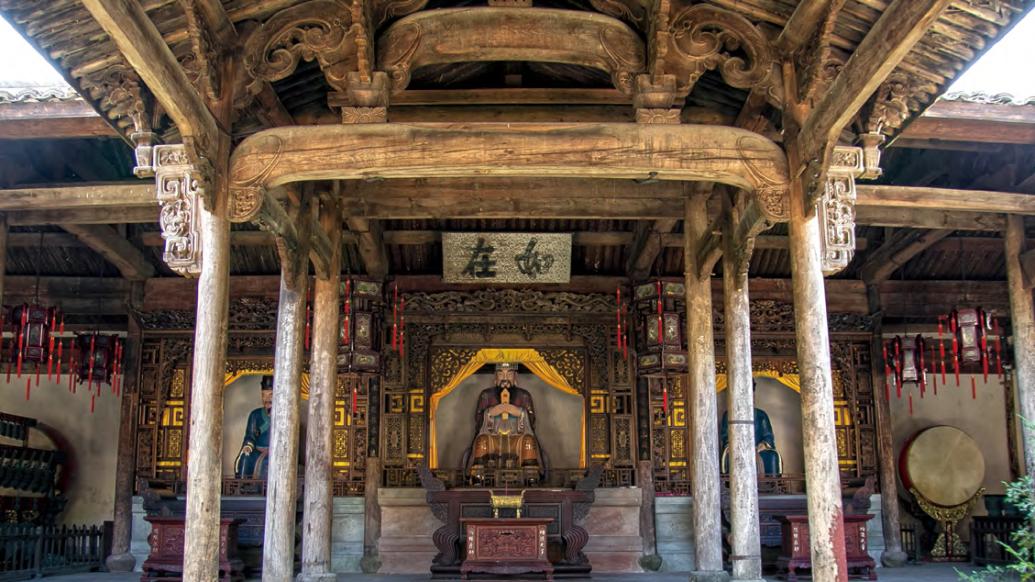
Jinhua Juxi Kongshi Jiamiao.
Today, Juxi Kongshi Jiamiao is recognized as a national key cultural relic protection unit, a testament to its historical and cultural significance. It serves as a poignant reminder of the resilience of Confucian values in the face of adversity, showcasing the village’s unique blend of natural beauty, rich history, and enduring cultural identity. Visitors to the hall can explore its intricately carved wooden beams, beautifully inscribed couplets, and the tranquil surroundings that have inspired generations of scholars, ensuring that the legacy of Confucius continues to thrive in this hidden gem of Zhejiang Province.
Main Highlights: What to See at Jinhua Juxi Kongshi Jiamiao
Nestled within the lush embrace of the Dapan Mountain National Nature Reserve, Jinhua Juxi Kongshi Jiamiao (榉溪孔氏家庙) stands as a testament to the enduring legacy of Confucius and the cultural history of the Kong family. This ancient family temple, revered as the “Southern Ancestral Temple of Confucius,” is not merely a religious site; it is a historical landmark that tells the story of resilience, heritage, and the reverence for Confucian values.
A Unique Cultural Heritage Site
Juxi Kongshi Jiamiao is recognized as one of the only three major Confucian temples in China. It serves as a spiritual and cultural hub for the Kong family, which claims descent from Confucius himself. The temple is a symbol of the “Wuzhou South Kong,” representing a lineage that has thrived for nearly 900 years in this picturesque village. The site is adorned with intricate architecture, featuring stone pillars and wooden structures that showcase traditional Chinese craftsmanship, inviting visitors to immerse themselves in the profound history that echoes through its halls.
Scenic Surroundings
The village of Juxi, also known as Juchuan, is enveloped by breathtaking natural landscapes, characterized by rolling hills, clear streams, and ancient trees. The entire area has been awarded sustainable development accolades, highlighting its harmonious blend of nature and culture. Visitors can meander along the charming old streets, where cobblestone paths and quaint houses create a serene atmosphere, perfect for a reflective stroll or a leisurely exploration of the surrounding countryside.
Historical Significance
The temple’s history dates back to the Song Dynasty, when the 48th descendant of Confucius, Kong Duan Gong, established himself in this area after fleeing southward to escape the chaos of war. His decision to settle in Juxi was influenced by the area’s stunning natural beauty and its ideal living conditions. The temple was officially recognized and constructed during the Baoyou period (1253-1258), receiving imperial approval and the honorific title “Everlasting Teacher of All Generations.”
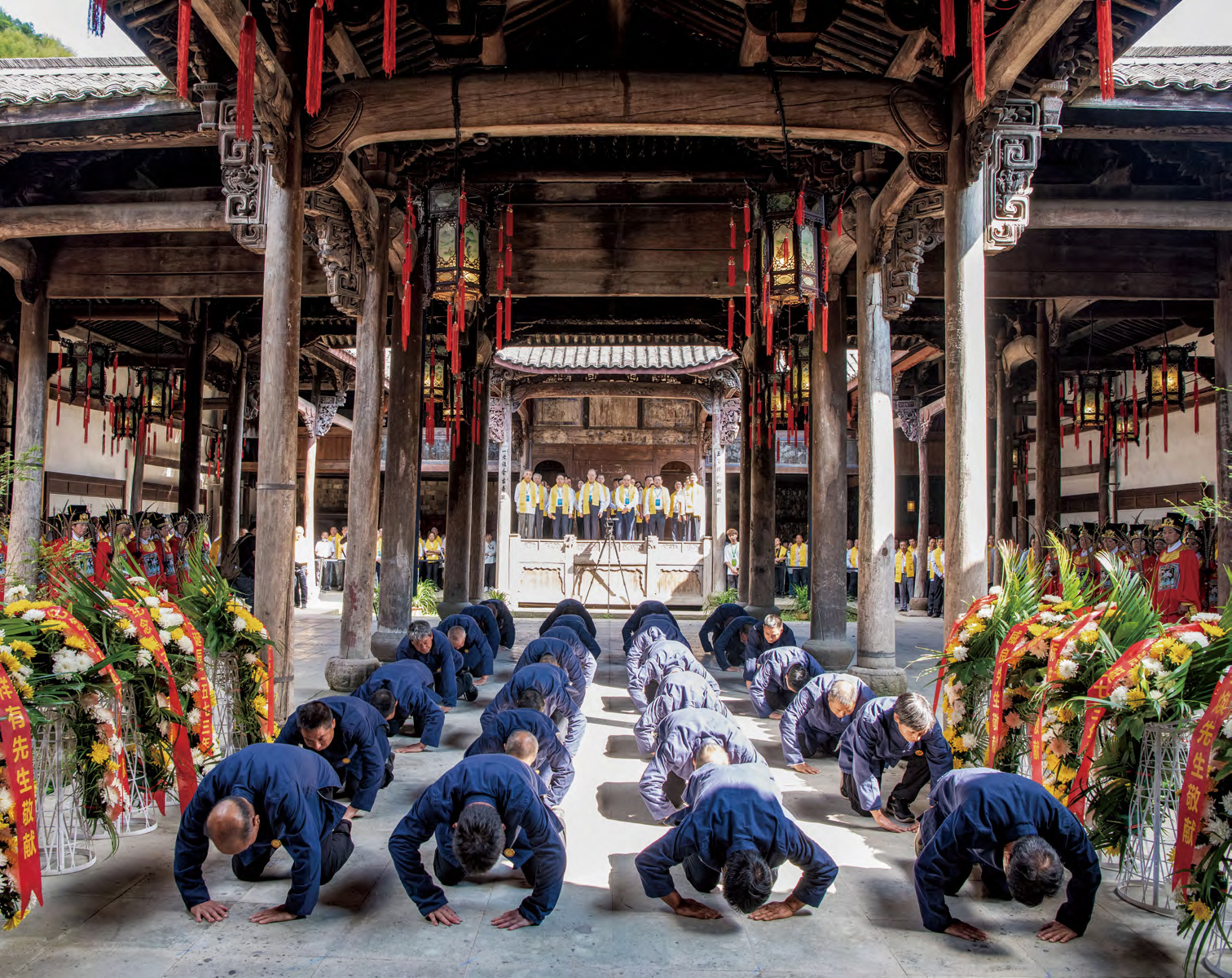
Jinhua Juxi Kongshi Jiamiao.
Cultural Practices and Events
The Juxi Kongshi Jiamiao is not only a site for historical reflection but also a living cultural space where traditional Confucian practices are upheld. Festivals, ceremonies, and educational events are regularly held here, allowing visitors to engage with the values of filial piety, respect for learning, and moral integrity that Confucius championed. The temple serves as a gathering place for the Kong family and the community, fostering a sense of belonging and continuity of heritage.
Natural Wonders and Local Attractions
Beyond the temple, the surrounding region offers a plethora of natural wonders and scenic spots. Visitors can hike in the nearby Dapan Mountain, explore ancient bridges, and marvel at the 900-year-old yew tree that stands as a living monument to the village’s long history. The area is also home to various traditional structures, including ancient wells and tombs, providing further insight into the rich history of the region.
In summary, the Jinhua Juxi Kongshi Jiamiao is a remarkable destination for those seeking to explore China’s deep cultural roots and natural beauty. Its combination of historical significance, cultural practices, and stunning landscapes makes it a must-visit for anyone interested in the legacy of Confucius and the traditions of Chinese civilization.
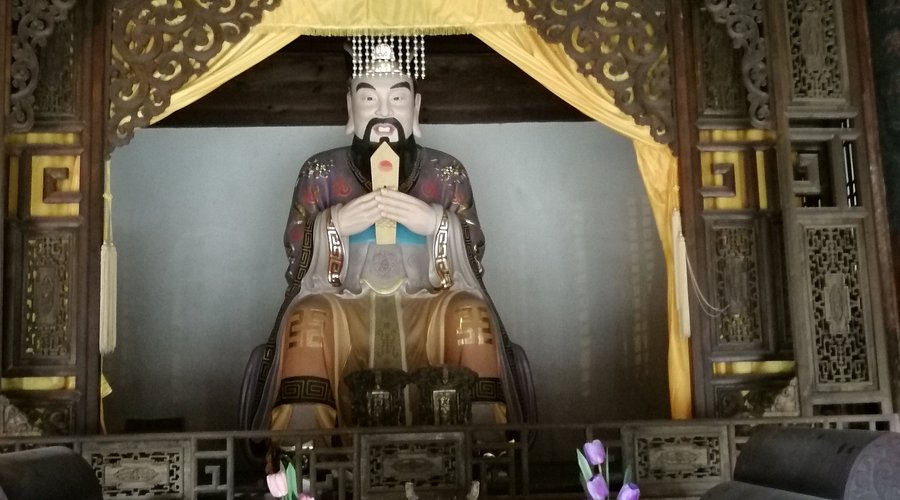
Jinhua Juxi Kongshi Jiamiao.
Planning Your Visit: A Practical Guide
Visiting Jinhua Juxi Kongshi Jiamiao (榉溪孔氏家庙), nestled in the serene hills of Jinhua, Zhejiang Province, offers an enriching experience steeped in cultural heritage. This practical guide provides essential information to help you navigate your visit to this historic site.
Getting There
Location:
Jinhua Juxi Kongshi Jiamiao is located in Juxi Village, Panfeng Township, Pan’an County, approximately 30 kilometers southeast of Pan’an City.
Transportation:
– By Car: The most convenient way to reach the temple is by car. The journey from Pan’an takes about 40 minutes, passing through picturesque mountain scenery.
– Public Transport: Local buses may be available from major cities like Jinhua to Pan’an, but schedules can vary. It’s recommended to check local transport apps or inquire at your hotel for the latest information.
Opening Hours and Admission
Hours of Operation:
The temple is open year-round from 8:00 AM to 5:00 PM.
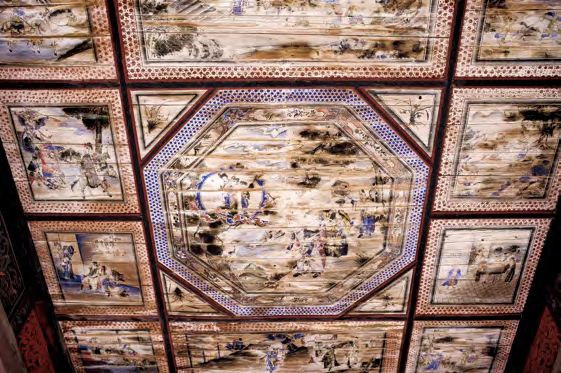
Jinhua Juxi Kongshi Jiamiao.
Admission Fees:
– General Admission: 30 RMB per person.
– Discounts: Reduced rates are available for children between 1.2 meters and 1.5 meters in height, as well as for seniors over 60 years old with valid ID.
– Free Admission: Children under 1.2 meters and active military personnel with identification can enter free of charge.
What to Expect
Cultural Significance:
The Juxi Kongshi Jiamiao is dedicated to the lineage of Confucius, specifically the Southern Confucian sect. It is renowned as one of the three major Confucian temples in China, alongside those in Qufu and Quzhou. This temple not only serves as a religious site but also as a cultural hub, reflecting the rich heritage of Confucian teachings in the region.
Architectural Highlights:
– The temple features traditional Song Dynasty architecture, characterized by elegant wooden structures and intricate carvings.
– Key areas within the temple include the main hall, ancestral shrines, and a tranquil courtyard adorned with ancient trees and stone pathways.
– The temple complex is surrounded by lush mountains and streams, enhancing its spiritual atmosphere.
Nearby Attractions
Exploring the Surrounding Area:
– Zhongshan Mountain: A short hike offers stunning views of the Juxi Village and its surroundings. The mountain is home to the tomb of Kong Ruojun, Confucius’ 48th descendant, adding historical depth to your visit.
– Cultural Sites: Explore the local village to see traditional architecture and other historical sites, including ancient bridges and the remains of traditional workshops.
Tips for Visitors
- Dress Appropriately: As a place of worship, modest clothing is advisable. Comfortable footwear is recommended for exploring the temple and surrounding area.
- Photography: Be respectful when taking photographs, especially in areas designated for prayer and reflection.
- Timing Your Visit: Early morning or late afternoon visits are ideal to avoid crowds and experience the serene atmosphere.
- Local Cuisine: Don’t miss the chance to sample local dishes at nearby restaurants. The region is known for its fresh produce and farm-to-table dining experiences.
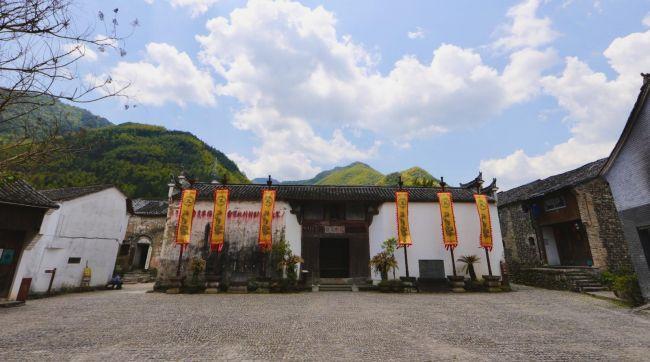
Jinhua Juxi Kongshi Jiamiao.
Conclusion
A visit to Jinhua Juxi Kongshi Jiamiao offers a unique glimpse into the traditions of Confucianism and the cultural riches of rural China. With its breathtaking scenery, historical significance, and tranquil ambiance, this destination promises a memorable experience for travelers seeking a deeper understanding of Chinese heritage.
Tickets, Hours, and Booking
When planning your visit to the Jinhua Juxi Kongshi Jiamiao (孔氏家庙), it’s essential to know the ticketing details to ensure a smooth experience.
Ticket Information
-
General Admission: The entrance fee for adults is set at RMB 20.
-
Discounted Tickets:
- Children between 1.2 meters (approx. 3.9 feet) and 1.5 meters (approx. 4.9 feet) in height can purchase tickets at a reduced rate of RMB 10.
-
Seniors aged 60 and above are also eligible for the discounted ticket price of RMB 10, provided they present valid identification.
-
Free Entry:
- Children under 1.2 meters in height can enter for free.
- Active military personnel with valid identification can enjoy complimentary admission.
Opening Hours
The Juxi Kongshi Jiamiao is open year-round from 8:00 AM to 5:00 PM. It’s advisable to arrive early to fully explore the temple and its surrounding beautiful landscapes.
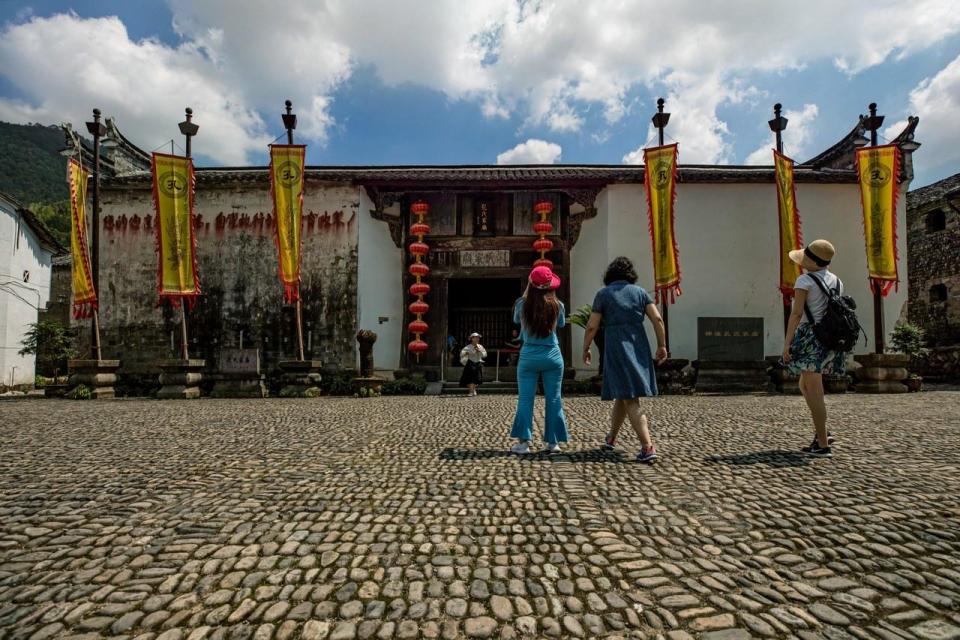
Jinhua Juxi Kongshi Jiamiao.
Tips for Visitors
- Advance Booking: While tickets can be purchased on-site, consider checking if advance online booking is available for a more convenient visit.
- Explore the Surroundings: The temple is located in a picturesque village, so take some time to enjoy the natural beauty and historical architecture nearby.
Make sure you have your identification on hand to take advantage of any discounted ticket options and enjoy your visit to this culturally rich site!
How to Get There
Reaching Jinhua Juxi Kongshi Jiamiao, also known as the Confucius Family Temple in Juxi Village, requires a bit of planning, but the journey is well worth it for those interested in Chinese culture and history. This ancient site, nestled in the lush surroundings of the Dapan Mountain region in Zhejiang Province, is accessible via various modes of transportation.
By Air
The nearest major airport is Yiwu Airport (YIW), located approximately 50 kilometers away. This airport offers domestic flights to major cities across China. From the airport, visitors can take a taxi or arrange for a car hire to reach Juxi Village.
By Train
For those traveling from other regions in China, the Yiwu Railway Station is the closest train station. It connects to many major cities, including Shanghai, Hangzhou, and Nanjing. From Yiwu, you can take a local train or bus to Pan’an County, where Juxi Village is situated. The train journey to Yiwu is comfortable, and high-speed train options are available, making it a convenient choice.
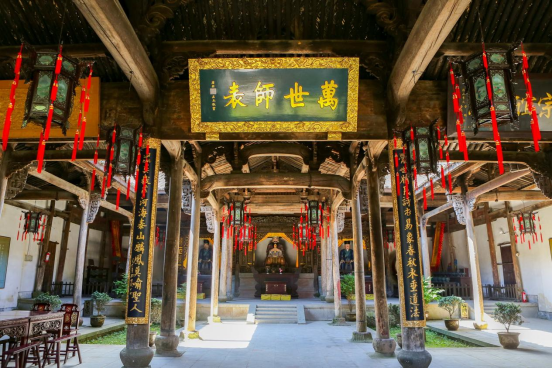
Jinhua Juxi Kongshi Jiamiao.
By Bus
Long-distance buses operate regularly from various cities in Zhejiang Province to Pan’an County. Buses from Jinhua and Yiwu are frequent and provide a cost-effective means of transportation. The bus journey from Jinhua to Pan’an takes about an hour. Once you arrive at the Pan’an bus station, local taxis or ride-sharing services can transport you directly to Juxi Village, which is about 30 kilometers away.
By Car
Driving to Juxi Village offers the most flexibility. The village is accessible via well-maintained roads, and the scenic mountain views along the way enhance the experience. If you are coming from Jinhua, you can take the G60 Huhang Expressway, which connects seamlessly to local roads leading to Pan’an and then to Juxi Village. Parking is available near the temple area.
Local Transportation
Once you arrive in Juxi Village, the area is best explored on foot. The village features charming old streets and paths leading to the Confucius Family Temple. Local guides are often available for hire, providing insights into the history and significance of the site. Bicycles are also an option for those who prefer a bit more mobility while enjoying the beautiful landscape.
Conclusion
While Jinhua Juxi Kongshi Jiamiao may require some effort to reach, the journey through Zhejiang’s picturesque mountains and rich history is undeniably rewarding. Whether you opt for air travel, trains, buses, or driving, each mode of transport offers a unique perspective on this cultural gem. Make sure to plan your trip ahead of time to ensure a smooth and enjoyable visit to this significant historical site.
Local Cuisine and Accommodation
Nestled in the picturesque hills of Jinhua, Juxi Kongshi Jiamiao (孔氏家庙) offers a unique blend of cultural heritage and local culinary delights, making it an ideal escape for both history enthusiasts and food lovers.
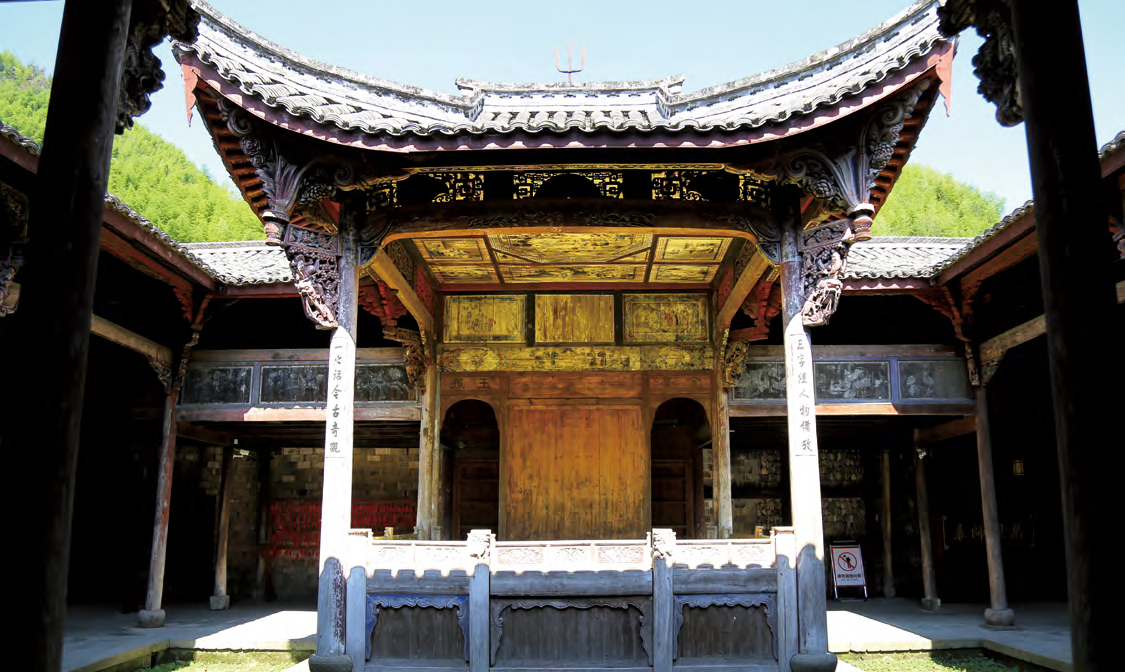
Jinhua Juxi Kongshi Jiamiao.
Dining Options
While Juxi Village is relatively small, it boasts a few charming eateries that highlight the region’s culinary heritage. Here are some recommended spots to savor local flavors:
-
Xianju Eight Dishes (仙居八大碗)
Located about 20 kilometers from Juxi, this restaurant is famous for its traditional Jiangnan cuisine. The restaurant serves a variety of dishes, but the specialty is the “Eight Dishes” set, offering a taste of authentic local flavors at around ¥80 per person. With its warm ambiance and attentive service, it’s a perfect spot to experience the essence of the region. -
Three Thousand Courtyards (三千院·东篱)
About 22 kilometers away, this restaurant is known for its generous portions of Jiang-Zhe cuisine. Diners can enjoy a variety of dishes featuring locally sourced ingredients, with prices averaging around ¥141 per person. The service is noted for its friendliness, making it a pleasant dining experience. -
Luzhai Family Restaurant (卢宅人家)
Situated around 46 kilometers from the village, this eatery provides a homely atmosphere where visitors can enjoy hearty Jiang-Zhe dishes. Meals here are priced at approximately ¥83 per person and are well-received for their flavor and quality.
Accommodation
For those looking to extend their stay and immerse themselves in the tranquil surroundings, there are several accommodation options nearby:
-
Panan County Hotels
The nearest town, Panan, offers a range of hotels from budget to mid-range options. The Panan Grand Hotel and Panan International Hotel are well-regarded for their comfortable rooms and convenient amenities. Prices typically range from ¥300 to ¥600 per night depending on the season and room type. -
Homestays in Juxi Village
Experience the local culture firsthand by staying in one of the homestays available in Juxi Village. These accommodations often feature traditional architecture and provide a unique glimpse into local life. Prices vary but generally start at around ¥150 per night, including meals. -
Countryside Retreats
For a more immersive experience, consider booking a stay at a countryside retreat. These retreats often offer scenic views, fresh air, and a chance to engage with nature. Options like Dapan Mountain Hot Spring Resort provide relaxation and wellness amenities, with prices starting at ¥500 per night.
Conclusion
Whether you’re savoring the local dishes or enjoying the serene ambiance of Juxi Kongshi Jiamiao, your stay promises to be both fulfilling and memorable. The combination of excellent food and comfortable accommodation makes this destination a hidden gem worth exploring.
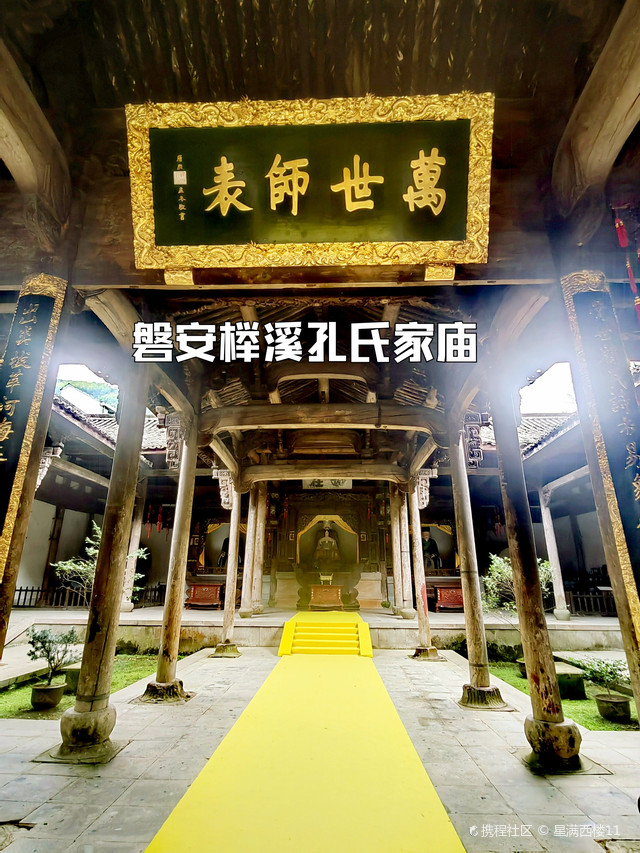
Jinhua Juxi Kongshi Jiamiao.
Frequently Asked Questions
Frequently Asked Questions about Jinhua Juxi Kongshi Jiamiao
1. What is Jinhua Juxi Kongshi Jiamiao?
Jinhua Juxi Kongshi Jiamiao, also known as the Kong Family Ancestral Hall, is a historical and cultural site located in Juxi Village, Pan’an County, Zhejiang Province. It serves as a significant residence and worship place for descendants of Confucius, specifically the “Southern Kong” lineage, which has been preserved for nearly 900 years.
2. How do I get to Jinhua Juxi Kongshi Jiamiao?
The ancestral hall is situated about 30 kilometers from Pan’an County. Visitors can reach it by car, and public transportation options may include local buses or taxis from nearby towns. The scenic route offers beautiful views of the surrounding mountains.
3. What are the opening hours?
The Kong Family Ancestral Hall is open daily from 8:00 AM to 5:00 PM, allowing visitors to explore the site throughout the entire week.
4. Is there an entrance fee?
Yes, there is an entrance fee to visit the site. Children under 1.2 meters in height can enter for free, while children between 1.2 and 1.5 meters and seniors over 60 are eligible for discounted tickets. It’s advisable to check the current pricing on the day of your visit.
5. What can I expect to see at the ancestral hall?
Visitors can explore the hall’s impressive architecture, historical artifacts, and the beautifully maintained grounds. Key highlights include the main worship hall, ancient trees, and the graves of prominent ancestors such as Kong Duan, the 48th descendant of Confucius.
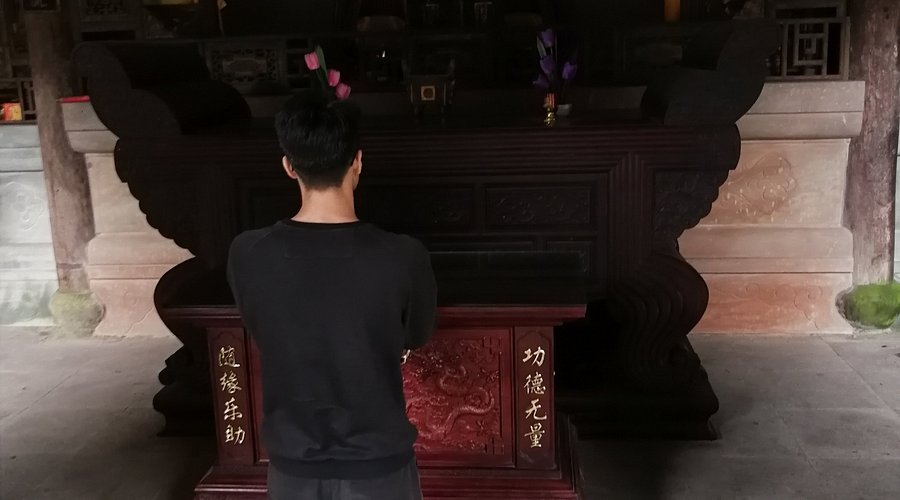
Jinhua Juxi Kongshi Jiamiao.
6. Are there any guided tours available?
Yes, guided tours are available and highly recommended for a deeper understanding of the historical and cultural significance of the site. Local guides can provide insights into the lineage of Confucius and the role of the ancestral hall in preserving Confucian traditions.
7. What other attractions are nearby?
In addition to the Kong Family Ancestral Hall, visitors can explore the picturesque Juxi Village, which is surrounded by stunning mountains and rivers. There are also hiking trails, local eateries, and other cultural sites in the vicinity that celebrate the area’s rich heritage.
8. Can I participate in any cultural events or ceremonies?
Yes, the ancestral hall occasionally hosts cultural ceremonies and events related to Confucian teachings. Visitors are welcome to observe or participate, depending on the event and any guidelines set by the hall’s management. It’s best to check in advance for any scheduled activities during your visit.
Final Thoughts on Your Trip
Jinhua Juxi Kongshi Jiamiao is not merely a monument; it is a living testament to the enduring legacy of Confucius and the profound cultural heritage of the Kong family. Nestled in the serene embrace of the Dapan Mountain range, this ancient ancestral temple stands as a beacon of tradition and spirituality, drawing visitors from near and far who seek to connect with the ideals of wisdom and virtue that Confucius espoused.
The journey to this hidden gem reveals not only the stunning landscapes of Juxi Village but also the rich tapestry of history interwoven with the lives of the Kong descendants. With every stone and inscription, the temple narrates stories of resilience, respect for ancestry, and the commitment to education and moral integrity that has flourished here for centuries.
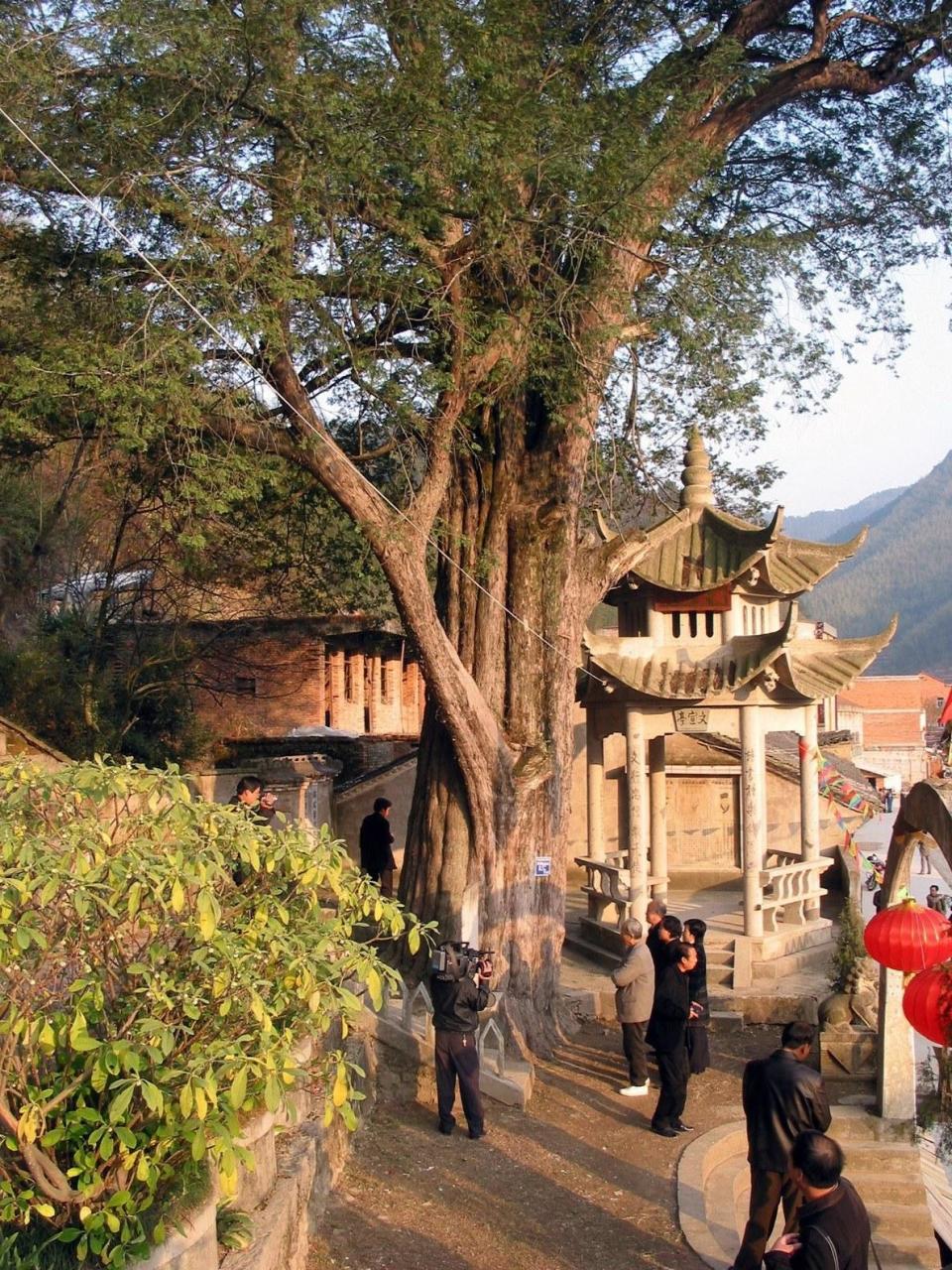
Jinhua Juxi Kongshi Jiamiao.
As you stroll through the temple’s sacred halls and reflect on the teachings of Confucius, you are reminded of the importance of cultural preservation in our rapidly changing world. The Kong family’s dedication to their heritage offers an inspiring example of how history can shape identity and community, ensuring that the wisdom of the past continues to resonate in the lives of future generations.
Visiting Jinhua Juxi Kongshi Jiamiao is not just a trip; it is an invitation to immerse yourself in the philosophical teachings that have guided countless lives. It encourages us all to carry forward the values of respect, learning, and familial bonds, illuminating the path for those who follow. Whether you are a history enthusiast, a seeker of wisdom, or simply a traveler yearning for a deeper connection to culture, this remarkable site promises an experience that will linger in your heart long after you leave its hallowed grounds.
